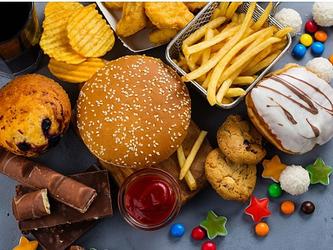Junk food ad ban could see advertising jobs lost, warns IPA
The Department for Health and Social Care unveiled the policy today as part of a national obesity strategy, which will also end buy-one-get-one-free deals on unhealthy foods.
But the IPA said the ban on pre-watershed advertising for junk foods would have no impact on childhood obesity, and has detailed its concerns with the policy in a letter to the Prime Minister, Boris Johnson.
The letter says that the government’s impact assessment of the policy from last year found that any watershed ban would only remove 1.7 calories a day from a child’s diet – the equivalent to half of a chocolate Smartie.
Children’s exposure to HFSS advertising had already fallen by 70% over the past decade, the letter says, but obesity levels have continued rising at the same time.
The letter argues that the ban would have a severe impact on revenue and jobs across the advertising sector for relatively little end result.
A recent study by Oxford Economics has showed that Covid-19 could see turnover in the advertising sector drop by £19bn, with 49,000 jobs lost and advertising spending expected to drop by £4bn in 2020, the letter says.
The IPA wrote that the advertising sector wanted to help the government tackle obesity effectively, but was opposed to a “wholly disproportionate” advertising ban that would damage the industry.
Paul Bainsfair, director general of the IPA, said: “Covid-19 has already dealt a significant blow to many businesses, and advertising restrictions would compound these pressures at the very time when the economy needs to regenerate.
“Given the current economic climate, imposing restrictions on the very industry that helps promote economic activity is surely counter-intuitive, particularly when those restrictions will not achieve their intended aim.”

We hope you enjoyed this article.
Research Live is published by MRS.
The Market Research Society (MRS) exists to promote and protect the research sector, showcasing how research delivers impact for businesses and government.
Members of MRS enjoy many benefits including tailoured policy guidance, discounts on training and conferences, and access to member-only content.
For example, there's an archive of winning case studies from over a decade of MRS Awards.
Find out more about the benefits of joining MRS here.














0 Comments